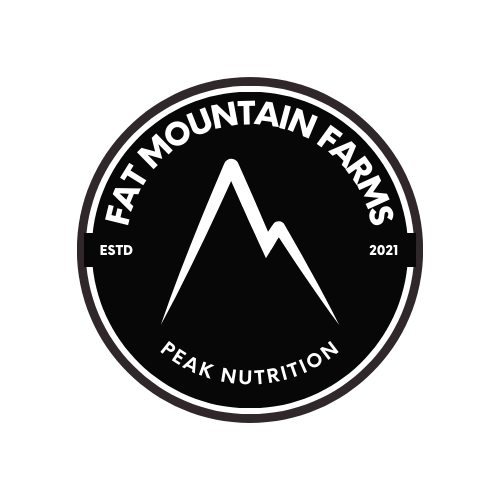From growing up in London, England, farming did not really mean much to me. My expertise in farming went as far as going to the grocery store and purchasing meat and produce for my Mom. The closest I came to contact with livestock was driving past sheep and cows on the highway when travelling up North. Where I am at now, I would have never predicted that farming would be a profession of mine; a profession that I love doing.
I came to the United States to study at college in North Carolina, while being on a Tennis scholarship. I remember the culture shock I had when first arriving at University, coming from one of the biggest cities in the world to living in one of the most rural parts of North Carolina. At the time, I still had no interest in farming; all I wanted to do was play tennis and party. In fact, one of the first classes I took at college was a soil management class. I had no idea why I was put in that class and thought learning about soil health was stupid. Looking back at it now, I truly believe it was the Lord that placed me in that class and had me on a path to become a regenerative farmer.
Farming really became a big part of my life when my father in-law, Jeff, introduced me to it. When I stayed at my girlfriend’s house (now wife) for a few weeks during the summer, Jeff would have me working out in the field, setting up electric fences and moving the sheep from pasture-to-pasture. Even at that time, farming was still not an interest of mine; I mainly did it to impress Jeff and not look like a lazy boyfriend.
However, as time went on and each summer went by, setting up electric fences and moving sheep started to become an enjoyable task and less of a chore. It would bring joy to me seeing how happy the sheep were when I moved them and see the differences in the pastures from where they previously were to where they were currently at.
Coming from a sporting background, I would look at taking care of the farm as a constant challenge and a competition. I would constantly want to make each pasture better and produce the healthiest sheep around. What really set off my competitive side was when we sent off soil samples to a lab to gain a better understanding of where our soil health stood. When the results came back, our soil health was a complete disappointment; the results showed extremely poor nitrogen and fertility levels. When seeing those results, I was angry and did not want to see those kinds of results again. I started reading books and blogs online on how to improve our farm's soil health. Jeff even took myself and two of his daughters to Joel Salatin’s farm, ‘Polyface Farm’, to gain a better understanding on how to be an effective regenerative farmer and how to start an effective farm business.
After gaining as much education on regenerative farming as we could, we realised the importance of placing the sheep in smaller pastures, to put a higher concentration of manure on the ground and have a higher density of sheep to stomp down grass and churn the soil up. After a couple months of placing the sheep in smaller pastures and providing significant rest for each pasture, it was truly incredible to see the difference we were making to our farm land. The grass was becoming more nutritious, the soil was absorbing and retaining water after a rainfall, and the sheep were becoming healthier.
I will always remember Jeff telling me to drive around our county and compare other farmer’s land to ours. When doing so, you could see the major differences; other farms' grass was like a golf course, while ours was a couple feet tall. Their livestock looked malnutritioned, while ours looked fat and healthy. There was clearly something we were doing right to our soil and sheep.
After a year of performing regenerative farming, Jeff wanted to make the farm official, hence the creation of Fat Mountain Farms, LLC. Our farm now has 80+ chickens, 75 sheep, and three beef cows. We are all still in the learning process of running a farm, but are enjoying every minute of it.
Our intentions are always to steward the land and animals in a way that glorifies God and promote the overall health and well-being of the animals and community. As a family, we are always striving for more, focusing on increasing our farm and livestock size so we can reach out to more of our community and replenish the land the way God intended.
Going from city boy to country boy was definitely a tough adjustment. From being the person who purchased food from the grocery store and driving past livestock on the highway, to being the person who is providing the food to the people and taking care of the livestock was something I never thought life would throw at me. Although it is one of the hardest professions in the market, it is definitely one of the most rewarding. We know as a family that we have a long way to go in producing a successful farm, however, we know we are making the right steps to get there and are glorifying God by stewarding the land the way he would have intended. I am grateful for the opportunities that have been given to me and cannot wait to see how our farm progresses in the future.

